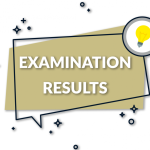Geography Tuition Singapore
Annually, our tutors always help students of all abilities to achieve their academic goals
About 35% of our clients are MOE teachers and university/NIE lecturers. They trust what our tutors teach their own children.
The proven expertise of our carefully-chosen star tutors makes it possible for students' grades to improve between 10 to 30 marks in 2 semesters.
Our 5 co-founders are former senior teachers/HODs from Singapore's top primary/secondary schools and junior college.
We have over 33,000 active and experienced tuition teachers, and will show you tutor profiles within 6 hours.
Geography Tuition Singapore | Geography Teacher Jobs Singapore | Geography Tutor | Social Studies Tuition | Geography Home Tutors
Since 2011, Professional Tutors Singapore has been the consistent leader in the education industry because of the quality of our tutors.
Geography Tuition Singapore | Geography Teacher Jobs Singapore | Geography Tutor | Social Studies Tuition | Geography Home Tutors
Every year, the syllabus gets more difficult, and the exam requirements are increasingly more demanding.
Competition to get into the good classes and universities is very intense.
Stress levels are sometimes overwhelming, and parents are worried that their children will be left behind or excluded once they get erratic grades.
Professional Tutors has established a very strong reputation for our ability to attract the best and most successful tuition teachers in Singapore to be part of our team.
Outstanding, high-quality and credible tutors make it possible for our students to receive the reliable and effective academic help that they need, in order to perform much better.
Our 33,000 qualified tutors have 2 clear objectives:
1. Dependably and systematically prepare you for your next assessment/exam
2. Quickly and competently help you score maximum marks for each exam section
Take Control Of Your Grades Today
Primary School Tuition
Secondary School Tuition
Integrated Programme Tuition
International Baccalaureate Tuition
Junior College Tuition
Polytechnic Tuition
University Modules Tuition
Geography Tuition Singapore | Geography Teacher Jobs Singapore | Geography Tutor | Social Studies Tuition | Geography Home Tutors
Hire Singapore's Most Successful Tuition Teachers
Geography Tuition Singapore | Geography Teacher Jobs Singapore | Geography Tutor | Social Studies Tuition | Geography Home Tutors
Tutors: Please ensure that you have registered at: https://professional-tutors.com/tuition-jobs-better-assignments-fast/
We are not able to accept any tutor registrations through this Hire Tutors Form. Thank you.
Geography Tuition Singapore | Geography Teacher Jobs Singapore | Geography Tutor | Social Studies Tuition | Geography Home Tutors
We are confident that you will succeed
Geography Tuition Singapore | Geography Teacher Jobs Singapore | Geography Tutor | Social Studies Tuition | Geography Home Tutors








Singapore's largest team of qualified tutors
- Choose from MOE teachers, experienced tuition teachers with PhD/Master’s/Bachelor’s, or who are proficient university undergraduates
- Whether your dream is to start your own business, or to work for a prestigious MNC – the most important and useful immediate objective would be to receive the best academic guidance now, so that your grades can open many more important doors for you
- Annually, our tutors always help students of all abilities to achieve their academic goals
Satisfied clients every year since 2011
- Students benefit from our experience, quality tuition teachers, track record, and superior reputation
- Within 6 hours, our 20+ resourceful tuition coordinators (all of them have graduated from NUS, NTU and SMU) ensure that you can easily choose and hire the ideal tutor that fits your criteria
- 100% successful matches. Every time
- No agency fees. You pay only for lessons conducted
Geography Tuition Singapore | Geography Teacher Jobs Singapore | Geography Tutor | Social Studies Tuition | Geography Home Tutors
Proven methods to score higher grades
- Our private tutors show you the important patterns and links in each chapter, and how to answer challenging application questions
- We teach you why and how to focus on the most crucial aspects of textbook content
- You will learn correct answering techniques so that your responses are specific and never off-point
- Practice worksheets/past exams with an acknowledged expert, so that your mistakes can be quickly and patiently corrected
Latest MOE syllabus, and exam marking scheme requirements
Our experienced and committed tutors will help you:
- Answer difficult exam questions
- Correctly prepare for your homework/projects
- Understand and revise every chapter
- Learn ahead of the syllabus
- Identify, avoid and prevent careless mistakes
Geography Tuition Singapore | Geography Teacher Jobs Singapore | Geography Tutor | Social Studies Tuition | Geography Home Tutors
We have the education industry's most admired tutor database
- Tutors know that we are very careful and highly selective during the matching process
- We do not accept under-performing tutors in our team/database
- Professional Tutors therefore attracts tuition teachers who have already acquired and maintained an impressive track record of helping their students’ grades consistently and substantially improve
Our 5 co-founders collectively have over 70 years of experience in the field of education
- Also, our Advisory Panel comprises former MOE school principals, subject Heads of Department, and senior teachers
- This ensures that our tutors are firmly on track to teach the latest MOE syllabus, and are familiar with the exam requirements and marking schemes, as well as the requisite answering techniques
Geography Tuition Singapore | Geography Teacher Jobs Singapore | Geography Tutor | Social Studies Tuition | Geography Home Tutors
Critical thinking is very important to obtaining strong overall analytical skills.
Effective critical thinkers are able to think clearly and rationally and understand the logical relations between data points and ideas.
Data and content form the core of the essence of what you need to learn for your exams.
You need to identify patterns in the data and content that are given in your text books, and also to correctly convey your analysis of the data to exam markers, in order to earn crucial exam marks.
In every exam/assessment that we take from P1 to post-doctoral level – and especially once we start working after graduation – we need to objectively analyze complex problems to form a judgment and the best response to make.
When you want to arrive at rational answers, critical thinking is a very important skill to master.
There are a few different types of logical thinking, including:
- Inference: Assuming an answer based on facts we already know
- Inductive reasoning: Observing a specific pattern, then making a general conclusion
- Deductive reasoning: Observing a general premise, then applying it to a specific situation
Are you an analytical thinker?
An analytical thinker is a person driven by curiosity to get to the bottom of things and is then able to solve a problem or find an answer.
They do not assume anything about the problem at hand.
Instead, they begin by questioning everything about the issue.
You can start to develop these good analytical thinking habits listed below (some, but not all of these qualities may be found in a person with an analytical nature):
- Search for information and evidence.
- Analytical thinkers will find and evaluate every bit of information they can accumulate on a particular subject or challenge before arriving at a decision
- Develop logical and systematic processes.
- Rarely will an analytical thinker be swayed by emotion.
- Usually, this individual will use linear thinking to arrive at a sound, sensible, well-thought-out conclusion.
- Logical thinkers tend to embrace structure and rules.
- Most analytical thinkers like to work in a well-organized way.
- When you are organized, you will be thorough in your work and never miss out on important information that needs to be reviewed and considered.
- For example, if you develop a keen interest in an area, you’ll make sure you learn as much as possible about that field and become an expert.
- This is the kind of professionalism and attention to detail that businesses (and your exam markers) are looking out for.
- Start having routines in your daily life.
- Analytical thinkers enjoy routines and have steady, established habits.
- They prefer to know what and when something is going to happen. Daily life is often based around routines.
- They have an innate ability to concentrate, which means they usually like to work independently or in small teams.
- Develop sharp memory skills.
- It is common for an analytical thinker to thrive on learning new information – and once learned, that information is never forgotten.
- Analytical thinkers have exceptional memories, although they can opt to forget information that they do not consider critical to solving their current problem.
- Analytical thinkers can also be curious and observant.
- Get in the habit of asking “how?” and “why?”.
- They tend to be modest: it’s difficult to be curious and observant when one is arrogant and thinks that he/she already knows everything.
- You can consciously observe and analyze your surroundings.
- When you are highly perceptive, your mind is geared towards taking a bird’s eye view of things which enables you to consider the whole picture.
- This also means that you’ll be able to visualize how parts of a project fit together.
- You’ll be in a better position to foresee and predict how minor changes and adjustments can affect the outcome and make astute decisions.
- Get in the habit of forcing yourself to analyze seemingly obvious truths about the world.
- When you are always prepared and can handle risk well, it becomes highly unlikely that you will be shocked when faced with problematic situations.
- Your preparedness and risk management skills will help you ensure that you have predicted any potential threats to being able to answer difficult exam questions, and are already prepared with a plan of action.
- Analytical thinkers are known for spotting problems from far away, and being ready to meet challenges head-on.
If you can identify with the qualities above and prefer strategy and creativity over socializing and networking, chances are you’re an analytical thinker.
Whether you struggle with analytical thinking or seem to have natural analytical abilities, you can always improve your skills.
Visualization, creativity, and having a growth mindset – the ability to embrace new technologies and upgrade skills – are key to the analytical thinker’s success jobs that pay high salaries.
Analytical skills are used when detecting patterns and trends, brainstorming new ideas, observing data, collecting data, interpreting data, integrating new information, synthesizing information, and making decisions on what solutions to implement in a productive manner.
Analytical skills refer to a person’s ability to assess relevant information and facts, identify and define complex problems, investigate and extract crucial information from data, and find the best workable solutions to these problems.
According to LinkedIn, they are one of the top 10 most in-demand soft skills that employers always look for.
Analytical skills are highly transferable, making the analytical thinker an ideal fit for a variety of career fields.
The analytical thinker’s breadth and versatility of skills are the primary reason why employers look for this coveted trait.
Analytical and critical thinking skills allow employees to adapt and respond to new obstacles.
Company success often depends on employees who can efficiently and effectively analyze the vast amounts of data and information in the digital age.
Logical decision makers use fact-based, hard evidence to support their decisions and plans.
They arrive at their decisions after factoring every aspect of a situation and utilizing the best means of achieving the most optimal solution.
This results in successful outcomes because of the quality of decisions that they are able to make.
Companies that employ skilled analytical thinkers are better able to adapt and respond to new market conditions as well.
Accordingly, analytical skills show up frequently as a required quality in job descriptions.
For example, a sales job description may list qualitative analysis or predictive analysis as requirements.
Developing strong analytical skills is therefore vital to anyone who wants to succeed in their school/national exams and then when they start their careers.
You have to write analytically when you answer exam questions.
Analytical essays (even if they are only a few sentences long) provide a way to share your insights that provide substantive analysis of a topic.
A good analytical essay can explain and contextualize basic information for the exam marker.
Analytical responses serve two purposes: one for the reader and one for the writer.
Your exam marker wants to know how you have grown as a writer and thinker.
Your ability to write analytically will convince the exam marker that you have a strong grasp over the content that the question is testing you on.
What sets an analytical essay apart from a descriptive answer is the author’s point of view.
Analytical essays present an argument supported by evidence, whereas descriptive essays tend to be book summaries, film synopses, descriptive articles, and informative pamphlets that do not include analysis or opinion.
Similar to a good analytical essay, a strong descriptive essay will highlight its main points, organize given topics into body paragraphs, and use logical transitions.
Ultimately, however, descriptive essays summarize facts, while analytical essays delve into interpretation.
The best analytical essays offer a clear point of view, are well organized around a main idea, address opposing arguments, and are comprehensively supported by primary and secondary sources.
- You should start by choosing a point of view.
- No matter what you choose as your central point of view, you must be able to anchor your entire analytical essay around a singular thesis statement/point of view.
- Your introductory paragraph has to state your point of view.
- An excellent introduction will grasp your reader’s interest. It is therefore important that you take extra care in your opening paragraph.
- Good ways to start your essay would with a hook such as a bold statement.
- You should then provide a broad outline that addresses questions that the exam questions requires you to tackle.
- A good introduction concludes with a thesis statement that serves as the compass (ie “GPS”) for the entire essay.
- You then need to carefully organize the body of your essay.
- After your introductory paragraph, divide your essay into body paragraphs that dig deep into specific topics.
- All body paragraphs should serve the main goal of supporting your thesis statement, either by providing background information, delving into details, or providing contrasting viewpoints that each substantiate themselves.
- The number of body paragraphs will vary depending on the scope and length of your essay that the exam questions require from you.
- The structure of your essay is just as important as the subject of your essay, so do take the time to strategically plan each body paragraph.
- Your topic sentences must be clearly crafted.
- Each main body paragraph should begin with a topic sentence that both introduces the topic of the that specific paragraph, and then ties it to your main thesis.
- Populate your essay with evidence that is directly related to the exam question. Do not ramble or go off-point.
- The main body of the essay should be filled with a mixture of substance and analysis.
- You can convince your exam marker to give you higher marks only when you are able to provide solid evidence to back up your statements and point of view.
- Therefore, you must support the main points of your analysis with evidence taken from your textbooks or the research that you had previously conducted on this subject.
- You can make an argument stronger by acknowledging another point of view.
- Even if you do not agree with a critical perspective, you can still use a body paragraph to describe that point of view.
- You can then refute that argument with additional evidence and reasoning, strengthening your thesis/position on that issue.
- The summary is also very important.
- Wrap up your analytical essay with a concluding paragraph that recaps your argument.
- The concluding paragraph is not the place to introduce new evidence.
- Rather, it is the ribbon that you wrap around your entire essay, reminding your reader of your most important points and leaving them with some final convincing words for consideration of your point of view.
Perseverance means continuously working on a task despite having obstacles.
It means being hardworking and finishing what is started, even when barriers and problems arise.
Perseverance is an essential leadership skill.
It is more than just not giving up.
When you’re in a leadership role, perseverance is more of a problem-solving process that includes encountering a challenge, understanding why the challenge exists, finding a way to overcome the challenge and, above all, learning from the entire experience.
It is often what separates those that achieve success, and prevents disappointment for themselves and their team.
The satisfaction received from completing tasks and projects is very important to those who are able and want to persevere.
It means the willpower to work hard regardless of any obstacles, to be firm on achieving, and remaining consistent.
Sometimes we are unable to complete a task or get what we want when things don’t go our way.
However, by persevering, we can have better prospects of being successful.
Everyone who takes an idea and makes it into something valuable does it through hard work.
Tied very closely to hard work is perseverance, continuing forward without regard to discouragement, opposition, hurdles, or memories of previous failure.
Ultimately, perseverance is about being confident in your abilities and trusting that you’ll find a way through, if you persist.
Don’t be afraid to fail.
Perseverance comes from failing and getting back up.
Without failure, we cannot become resilient.
Therefore, we have to think of failure as a lesson, rather than a setback.
We can learn so much from failure that changing our attitude toward it can have amazing implications for our lives.
When we aim to be 1% better every day, we develop a growth mindset that is a great way to increase perseverance and motivation.
These are skills like any other types of talents that you want to develop, and try to improve upon them just 1% every day.
Keeping this concept in mind throughout the day is an excellent way to motivate ourselves.
Have you heard of the 40% Rule?
This Rule means that if you manage to complete 40% of the task, your likelihood of quitting drops dramatically.
So, work toward completing 40% of the task. Then the rest of the 60% is not that difficult/intimidating to complete.
Keep your goals in mind.
When we make mistakes or fail, many people will be tempted to give up altogether.
If we want to persevere, we need to keep our goals in mind at all times.
Start by writing down your short and long-term goals and place them somewhere that’s easy to access.
Ask yourself why you have chosen and then embarked on a certain goal.
Reflecting on that reminds us that the journey is worth our time.
Then, whenever there’s any discouraging event or comment, take a look at that list to inspire you and keep you moving forward.
Success can be a long and tough journey.
We should give ourselves rewards or encouragement along the way to the major goals.
The rewards can be anything from having a nice lunch, extra hours spent at the park, or a weekend break.
The rewards will keep reminding you of the progress you have made, and will provide continued motivation to persevere through difficult times.
The people who become successful are not the ones who are the most talented.
It’s the ones with the most endurance.
Whether the skill of perseverance comes easily to you or not, the best part is that there are so many ways for us to develop our mental resilience, which then helps our grades get better.
Self-motivation is the force that keeps pushing us to go on – it’s our internal drive to achieve, produce, develop, and keep moving forward.
When you think you’re ready to quit something, or you just don’t know how to start, your self-motivation is what pushes you to go on.
By setting a goal – anything from scoring 10 more marks for Maths, avoiding careless mistakes, or paying more attention in class – you are taking a big step toward improving your life.
However, following through to achieve what we’ve set out to accomplish can be challenging, especially on those days when our energy levels are low and we just don’t feel like putting in the work.
We all lose motivation from time to time.
When you’re feeling unmotivated, try one of these science-backed strategies to get yourself back on track toward your goal.
- Put your goal on the calendar and give yourself target dates. Whatever it is you’re aiming to accomplish, put the timelines on the calendar.
- If your goal lacks this structure, you can include it in your calendar by deciding on a date by which you could realistically achieve your goal.
- Having a target date not only helps you stay motivated, it also helps you track your progress – you always know how much further you have to go and how much you have already achieved.
- You can also draw a progress bar on a piece of paper that you can stick in front of your study area.
- Look at it regularly and fill it in as you get closer to your goal.
- This can have a big impact on your performance and determination to succeed.
- Set small goals that lead toward the main goal, in order to build momentum.
- Getting started is often the hardest part on low-motivation days, and starting is much easier when the task is small. Begin with five minutes of study first, then work your way up to an hour a day etc.
- Track your progress. Not every day will go exactly as planned, and that’s okay.
- We can’t predict everything that could happen, but we can predict some obstacles that are likely to happen from time to time based on our unique circumstances.
- Then when that obstacle pops up, instead of losing motivation and feeling deflated, you have a plan in place to keep the momentum going.
- Practice gratitude for every tiny step that you are making toward your small goals and eventual big goals.
- Research shows that frequent small successes can build a momentum that can in turn drive long-term success, especially early in the process.
- Whatever your big goal may be, start by breaking it down into smaller chunks, and it will be easier to achieve most or all of them.
- Reward yourself for the little wins as well as the big ones. Rewards can improve motivation and performance.
- Rewarding yourself for reaching small milestones and completing big goals could boost your interest and enjoyment in the work you’re doing.
- Spend a few minutes making your own reward list so that you’re ready to celebrate your wins, big and small.
- Improve your mood and mental health.
- A good mood has been linked to increased productivity, and improvement in both quality and quantity of our work.
- This doesn’t mean that you have to be positive all the time – being chirpy every minute of every day is not realistic.
- But if you’re feeling sluggish about working toward your goal, a quick mood lift could be enough to get you started.
- Having a change of your environment can help you approach your task with a fresh perspective (and a new sense of motivation).
- This is called the novelty effect – a short-term boost that comes from altering your environment or routine.
- Spend some time in nature (or at least get some sunlight while taking a nice walk around the neighbourhood).
- Try a different exercise routine.
- Watch funny videos on TikTok or YouTube.
Good ways to further motivate yourself would be to ask yourself:
- Why is this goal important to you?
- Why is that reason important to you?
Keep thinking about these until you get to your ultimate “why” – which is the core value that’s driving your goal.
What would it feel like to achieve your goal?
You know that it will feel great, and that promise of your happiness and sense of achievement will keep you focused on wanting to continue to do well.
Take control of your Geography grades today
33,000 experienced private tutors
MOE teachers, tutors with proven track records,
PhD/Master's/Post-Doctoral tutors,
Graduated/Undergraduate dependable tutors
Mr CFT has 6 years of Geography tuition experience. He is NIE-trained and taught at MOE schools for 7 years. Mr CFT has a Bachelor’s from NTU, majoring in Geography and Urban Planning (Honours). His private tuition students attended Cedar Girls’ Secondary School, Mayflower Secondary School, Tanjong Katong Girls’ School, Anderson Serangoon Junior College, National Junior College, and Victoria Junior College.
Ms SDA has 10 years of Geography tuition experience. She taught at a tuition centre for 3 years and is also a private tutor. Ms SDA has a Bachelor’s from NUS, majoring in Geography (Structural Geology). Her home tuition students attended Maris Stella High School, Crescent Girls’ School, Junyuan Secondary School, Eunoia Junior College, Temasek Junior College, and National Junior College.
Ms NJE has 14 years of Geography tuition experience. She was a contract teacher at 2 MOE schools for 5 years and also is a private tutor. Ms NJE has a Bachelor’s from NUS, majoring in Geography (Isotope Geochemistry). Her private tuition students attended Anglican High School, Beatty Secondary School, Geylang Methodist School (Secondary), Hwa Chong Institution (Integrated Programme), Jurong Pioneer Junior College, Yishun Innova Junior College, and Anglo-Chinese Junior College.
Ms LW has 4 years of Geography tuition experience. She has a PhD in Geography (Environmental Science) from Cambridge University. Her home tuition students attended Cedar Girls’ Secondary School, Bowen Secondary School, CHIJ St Nicholas Girls’ School, Anglo-Chinese Junior College, Raffles Institution, and St. Andrew’s Junior College.
Mr CO has 7 years of Geography tuition experience. He taught at two tuition centres for 5 years and is also a home tutor. Mr CO has a Master’s and a Bachelor’s in Geography from NUS. His private tuition students attended Bowen Secondary School, Changkat Changi Secondary School, Nanyang Girls’ High School, Catholic Junior College, River Valley High School, and Tampines Meridian Junior College.
Mr FPL has 2 years of Geography tuition experience. He has a Bachelor’s from NTU, majoring in Geography (Environmental Earth Systems) – First Class Honours. His private tuition students attended Raffles Girls’ School (Secondary), Pasir Ris Secondary School, Boon Lay Secondary School, Anderson Serangoon Junior College, Tampines Meridian Junior College, and Hwa Chong Institution.
Hire the best Geography experts to help you succeed
A committed and skillful Geography home tutor can make an important difference in how you understand the syllabus, and therefore achieve gains of 10 to 30 marks within 2 semesters
Mr RO has 7 years of Geography tuition experience. He has a Bachelor’s in Geography from NUS (Honours). Mr RO taught at a tuition centre for 3 years and is also a private tutor. His home tuition students attended Pei Hwa Secondary School, Naval Base Secondary School, Maris Stella High School, Catholic Junior College, Tampines Meridian Junior College, and Dunman High School.
Mr JH has 5 years of Geography tuition experience. He has a Bachelor’s from NTU, majoring in Geography (2nd Upper Class Honours). His private tuition students attended East View Secondary School, CHIJ St Joseph’s Convent, Nanyang Girls’ High School, National Junior College, Catholic Junior College, and River Valley High School.
Mr CPT has 9 years of Geography tuition experience. He has a PhD in Geography from Cornell University and a Bachelor’s in Geography from NUS (2nd Upper Class Honours). Mr CPT’s private tuition students attended St. Margaret’s Secondary School, Victoria School (Integrated Programme), Tanjong Katong Girls’ School, St. Andrew’s Junior College, Dunman High School, and Anglo-Chinese Junior College.
Ms CL has 18 years of Geography tuition experience. She has a Bachelor’s from NUS, majoring in Geography (Society and Culture). Her private tuition students attended Raffles Institution, North Vista Secondary School, CHIJ Secondary (Toa Payoh), National Junior College, Yishun Innova Junior College, and Dunman High School.
Mr JK has 7 years of Geography tuition experience. He has a Bachelor’s from NTU, majoring in Geography (Public Policy and Global Affairs) – 2nd Upper Class Honours. His home tuition students attended St. Patrick’s School, Ngee Ann Secondary School, CHIJ St Theresa’s Convent, Anderson Serangoon Junior College, Nanyang Junior College, and St. Andrew’s Junior College.
Ms NWY has 9 years of Geography tuition experience. She has a Master’s from the University of California, Berkeley in Geography (Global Ecology and Development) and a Bachelor’s from NUS in Geography (2nd Upper Class Honours). Her home tuition students attended Westwood Secondary School, St. Joseph’s Institution, Paya Lebar Methodist Girls’ School (Secondary), Jurong Pioneer Junior College, Dunman High School, and St. Andrew’s Junior College.iti
Mr SYP has 10 years of Geography tuition experience. He is NIE-trained and taught at an MOE school for 5 years. Mr SYP has a Bachelor’s in Geography from NUS (Honours). His private tuition students attended Marsiling Secondary School, Naval Base Secondary School, Paya Lebar Methodist Girls’ School (Secondary), Anderson Serangoon Junior College, Catholic Junior College, and Yishun Innova Junior College.
Mr WBL has 4 years of Geography tuition experience. He has a Master’s from Yale University, majoring in Geography (Urbanization, Global Change and Sustainability). He has a Bachelor’s in Geography from NUS. Mr WBL’s private tuition students attended Anderson Secondary School, Broadrick Secondary School, Cedar Girls’ Secondary School, Tampines Meridian Junior College, National Junior College, and Raffles Institution.
Ms PTH has 7 years of Geography tuition experience. She has a Bachelor’s from NUS, majoring in Geography (Ecology and Ecosystems – Tropical Forest Ecology). Her private tuition students attended Jurongville Secondary School, Hwa Chong Institution (Integrated Programme), Marsiling Secondary School, Temasek Junior College, Catholic Junior College, and National Junior College.
Ms KBT has 7 years of Geography tuition experience. She was a contract teacher at MOE schools for 5 years and is also a private tutor. Ms KBT has a Bachelor’s from NTU, majoring in Geography (Microbial water quality in the tropics) – First Class Honours. Her home tuition students attended Hong Kah Secondary School, Bedok View Secondary School, Catholic High School, Eunoia Junior College, Temasek Junior College, and St. Andrew’s Junior College.
Mr GFC has 10 years of Geography tuition experience. He is NIE-trained and has a Bachelor’s from NUS, majoring in Geography. Mr GFC’s home tuition students attended Dunearn Secondary School, Cedar Girls’ Secondary School, Nan Hua High School, Nanyang Junior College, Dunman High School, and Anglo-Chinese Junior College.
Mr WRW has 4 years of Geography tuition experience. He has a Bachelor’s from NTU, majoring in Geography (2nd Upper Honours). Mr WRW’s private tuition students attended Anderson Serangoon Junior College, Hwa Chong Institution, Tampines Meridian Junior College, Yishun Innova Junior College, Nanyang Junior College, and Dunman High School.
Ms YSM has 9 years of Geography tuition experience. She is NIE-trained and taught at an MOE school for 6 years. Ms YSM has a Bachelor’s from NUS, majoring in Geography (Geographical Information Systems) – Honours. Her home tuition students attended Hai Seng Secondary School, Chung Cheng High School (Yishun), Anglo-Chinese School (Independent), National Junior College, Temasek Junior College, and Yishun Innova Junior College.
Ms KTY has 2 years of Geography tuition experience. She has a Bachelor’s from NTU, majoring in Geography. Ms KTY taught at tuition centres for 5 years and is also a private tutor. Ms KTY’s home tuition students attended Jurong Secondary School, Ping Yi Secondary School, Raffles Institution, Hwa Chong Institution, Temasek Junior College, and Dunman High School.
Mr RL has 11 years of Geography tuition experience. He has a PhD from NUS in Geography (Environmental Processes). His Bachelor’s in Geography was also from NUS. Mr RL’s home tuition students attended St. Andrew’s Secondary School, West Spring Secondary School, CHIJ St Theresa’s Convent, Anderson Serangoon Junior College, National Junior College, and Victoria Junior College.
Ms CPE has 9 years of Geography tuition experience. She has a Master’s and Bachelor’s in Geography from NUS and was a contract teacher at MOE schools for 4 years. Ms CPE is the Head of Department for Humanities at a leading group of tuition centres. Ms CPE’s home tuition students attended Bukit View Secondary School, CHIJ St Joseph’s Convent, Maris Stella High School, Eunoia Junior College, National Junior College, and Saint Andrew’s Junior College
Ms TES has 6 years of Geography tuition experience. She has a Master’s in Geography from the University of British Columbia, and a Bachelor’s in Geography from NUS (First Class Honours). Her private tuition students attended Anglo-Chinese School (Independent), Catholic High School, Maris Stella High School, Anglo-Chinese Junior College, River Valley High School, and Raffles Institution.
Ms PY has 4 years of Geography tuition experience. She has a Master’s and Bachelor’s from NUS, in Geography. Ms PY’s private tuition students attended Clementi Woods Secondary School, Geylang Methodist School (Secondary), Methodist Girls’ School (Secondary), Victoria Junior College, Jurong Pioneer Junior College, and Nanyang Junior College.
Ms KSJ has 10 years of Geography tuition experience. She is NIE-trained and taught at an MOE school for 7 years. Ms KSJ has a Bachelor’s in Geography (2nd Upper Class Honours) from NTU. Her private tuition students attended Tanjong Katong Girls’ School, St. Gabriel’s Secondary School, Eunoia Junior College, River Valley High School, and Temasek Junior College.
Mr TP has 8 years of Geography tuition experience. He has a Bachelor’s in Geography from NTU. Mr TP taught at tuition centres for 5 years and is also a home tutor. His home tuition students attended Sembawang Secondary School, Westwood Secondary School, Singapore Chinese Girls’ School, Eunoia Junior College, Tampines Meridian Junior College, and Dunman High School.
Mr WYE has 5 years of Geography tuition experience. He has a Master’s in Geography from the University of Birmingham, and a Bachelor’s in Geography from NTU. Mr WYE’s private tuition students attended Northbrooks Secondary School, Montfort Secondary School, Crescent Girls’ School, Jurong Pioneer Junior College, St. Andrew’s Junior College, and Dunman High School.
Mr CKB has 9 years of Geography tuition experience. He was a contract teacher at MOE schools for 3 years and taught at tuition centres for 5 years. Mr CKB has a Bachelor’s from NUS, majoring in Geography (Urban Studies) – First Class Honours. Mr CKB’s private tuition students attended Pei Hwa Secondary School, Raffles Girls’ School (Secondary), St. Margaret’s Secondary School, Eunoia Junior College, Anglo-Chinese Junior College, and Nanyang Junior College.
Ms ST has 13 years of Geography tuition experience. She has a PhD in Geography from the University of Bristol. Her Bachelor’s in Geography was from NUS (First Class Honours). Ms ST’s home tuition students attended Hwa Chong Institution (Integrated Programme), CHIJ St Nicholas Girls’ School, Anglo-Chinese School (Independent), National Junior College, River Valley High School, and Victoria Junior College.
Ms LN has 5 years of Geography tuition experience. She taught at two tuition centres for 4 years and is also a private tutor. Ms LN has a Bachelor’s in Geography (Honours) from NTU. Her home tuition students attended Pasir Ris Secondary School, Nanyang Girls’ High School, MacPherson Secondary School, Jurong Pioneer Junior College, St. Andrew’s Junior College, and River Valley High School.
Ms YF has 15 years of Geography tuition experience. She has a Master’s and a Bachelor’s (2nd Upper Class Honours) in Geography from NUS. Ms YF was a contract teacher at MOE schools for 4 years and is also a private tutor. Her home tuition students attended Pioneer Secondary School, Catholic High School, Eastspring Secondary School, Hwa Chong Institution, Raffles Institution, and River Valley High School.
Ms BT has 6 years of Geography tuition experience. She has a Bachelor’s in Geography from NTU (Honours). Ms BT taught at one of Singapore’s top tuition centres for 5 years and is also a private tutor. Her home tuition students attended Chua Chu Kang Secondary School, Maris Stella High School, Peicai Secondary School, Victoria Junior College, Nanyang Junior College, and Dunman High School.
Mr NHS has 9 years of Geography tuition experience. He has a Bachelor’s in Geography from NUS (First Class Honours). His private tuition students attended Nanyang Girls’ High School, National Junior College (Integrated Programme), Juying Secondary School, Hwa Chong Institution, Temasek Junior College, and Jurong Pioneer Junior College.
Mr CHS has 4 years of Geography tuition experience. He has a Bachelor’s in Geography from NUS, and was a contract teacher at MOE schools for 2 years. His private tuition students attended Whitley Secondary School, Fuhua Secondary School, Montfort Secondary School, Nanyang Junior College, Victoria Junior College, and Tampines Meridian Junior College.
Ms GFB has 11 years of Geography tuition experience. She is NIE-trained and taught at MOE schools for 9 years. Ms GFB taught at a tuition centre for 2 years and is also a private tutor. Her home tuition students attended East View Secondary School, Geylang Methodist School (Secondary), Anglican High School, Anderson Serangoon Junior College, Nanyang Junior College, and River Valley High School.
Mr WRH has 7 years of Geography tuition experience. He has a Master’s and Bachelor’s in Geography from NUS. His private tuition students attended Woodlands Ring Secondary School, Temasek Junior College (Integrated Programme), St. Joseph’s Institution, National Junior College, Yishun Innova Junior College, and Catholic Junior College.
Mr CYK has 8 years of Geography tuition experience. He was a contract teacher at MOE schools for 3 years and is also a private tutor. Mr CYK has a Bachelor’s in Geography from NUS. His home tuition students attended Cedar Girls’ Secondary School, Greenview Secondary School, National Junior College (Integrated Programme), St. Andrew’s Junior College, Anglo-Chinese Junior College, and Anderson Serangoon Junior College.
Mr ATS has 13 years of Geography tuition experience. He taught at a tuition centre for 7 years and is also a private tutor. Mr ATS has a Bachelor’s in Geography from NTU (Honours). Mr ATS’s home tuition students attended Yusof Ishak Secondary School, Westwood Secondary School, Raffles Girls’ School (Secondary), Anglo-Chinese Junior College, Nanyang Junior College, and Dunman High School.
Ms EH has 9 years of Geography tuition experience. She is NIE-trained, and taught at MOE schools for 7 years. She has a Bachelor’s in Geography (2nd Upper Class Honours) from NTU. Ms EH’s private tuition students attended Bedok Town Secondary School, Cedar Girls’ Secondary School, Kuo Chuan Presbyterian Secondary School, Eunoia Junior College, Temasek Junior College, and Anglo-Chinese Junior College.
Ms NRW has 15 years of Geography tuition experience. She has a Bachelor’s from NTU, majoring in Geography (Environmental Earth System Science). Her private tuition students attended Maris Stella High School, Fairfield Methodist School (Secondary), Nan Hua High School, Catholic Junior College, Temasek Junior College, and Hwa Chong Institution.
Ms OTS has 12 years of Geography tuition experience. She has a Master’s and Bachelor’s in Geography from NTU. Ms OTS taught at tuition centres for 8 years and is also a private tutor. Her home tuition students attended Yishun Secondary School, Temasek Junior College (Integrated Programme), St. Gabriel’s Secondary School, Catholic Junior College, Raffles Institution, and Tampines Meridian Junior College.
Mr FE has 9 years of Geography tuition experience. He has a Bachelor’s from NUS, majoring in Geography. He taught at a tuition centre for 1 year. His private tuition students attended Xinmin Secondary School, St. Hilda’s Secondary School, Paya Lebar Methodist Girls’ School (Secondary), Tampines Meridian Junior College, Jurong Pioneer Junior College, and Victoria Junior College.
Ms WZY has 7 years of Geography tuition experience. She has a Bachelor’s in Geography from the University of Toronto, and a Master’s in Geography from NUS. Ms WZY was the Head of Geography at a tuition centre for 5 years, and is also a private tutor. Her home tuition students attended Chong Boon Secondary School, Fairfield Methodist School (Secondary), Guangyang Secondary School, Jurong Pioneer Junior College, Tampines Meridian Junior College, and Raffles Institution.
Ms MP has 4 years of Geography tuition experience. She has a Bachelor’s in Geography from NTU. Ms MP taught at a tuition centre for 2 years. Her home tuition students attended Bishan Park Secondary School, Deyi Secondary School, Hwa Chong Institution (Integrated Programme), Anderson Serangoon Junior College, Jurong Pioneer Junior College, and Temasek Junior College.
Mr GFC has 12 years of Geography tuition experience. He is NIE-trained and has a Bachelor’s in Geography from NUS. Mr GFC’s home tuition students attended Catholic High School Integrated Programme, Anglo-Chinese School (Barker Road), Hwa Chong Institution Integrated Programme, St Andrew’s Junior College, Eunoia Junior College, and Anderson Serangoon Junior College.
Our tutors always help students of all abilities to achieve their academic goals
Your Geography tuition teacher will clearly explain to you:
- Coasts – Should coastal environments matter
- Living with Tectonic Hazards – Risk or opportunity
- Variable Weather and Changing Climate – A continuing challenge
- Global Tourism – Is tourism the way to go
- Food Resources – Is technology a panacea for food shortage
- Health and Diseases – Are we more vulnerable than before
- Topographical Map Reading Skills
- Geographical Data and Techniques
- Geographical Investigations
- How and why are coastal environments different and dynamic
- Why are coastal areas valuable (Focus is on tropical coasts)
- How can we manage coastal areas in a sustainable manner
- Why are some areas more prone to tectonic hazards
- What landforms and associated tectonic phenomena are found at plate boundaries
- How do people prepare for and respond to earthquakes
- Why do different places experience different weather and climate
- What is happening to the Earth’s climate
- Is the weather becoming more extreme
- How does the nature of tourism vary from place to place
- Why has tourism become a global phenomenon
- Developing tourism at what cost
- How and why have food consumption patterns changed since the 1960s
- What are the trends and challenges in the production of food crops
- How can the problem of food shortage be addressed
- What are the global patterns of health and diseases
- What influences the spread and impact of infectious diseases
- How can we manage the current and future spread of infectious diseases
- Explain the different coastal processes
- Describe and explain the formation of cliffs, headlands, caves, arches, stacks and shore platforms
- Describe and explain the formation of bays, beaches, spits and tombolos
- Identify coastal landforms and features shown in topographical maps, photographs and sketches
- Draw and label a field sketch of a coastal area shown in a photograph
- Investigate how wave type influences beach profile and how longshore drift forms characteristic landforms
- Measure beach slope, beach materials, wave frequency and beach profile
- Analyse data and derive relationships between the following variables
- Wave steepness and beach slope
- Grain size and beach slope
- Calculate wave steepness using wave height and wave length data
- Plot and label beach profile
- Explain how the distinctive characteristics of coastal areas support a variety of human activities
- Fisheries
- Aquaculture
- Housing
- Transportation
- Tourism
- Recreation
- Describe the global distribution and characteristics of the coral reef ecosystem
- Explain the value of the coral reef ecosystem in the coastal environment
- Discuss the pressures that threaten the coral reef ecosystem
- Coral reefs
- Turbidity
- Habitat
- Coral bleaching
- Pressures
- Coastal development
- Describe the global distribution and characteristics of the mangrove ecosystem
- Explain the value of the mangrove ecosystem in the coastal environment
- Discuss the pressures that threaten the mangrove ecosystem
- Sediment supply
- Sheltered coastline resulting in low energy wave environment
- Habitat for marine creatures
- Stabilise shorelines by trapping sediments
- Identify the different kinds of human activities in coastal areas shown in maps, photographs and sketches
- Sustainable management of coastal areas
- Laws and regulations (e.g. Limit damaging activities, protect coastal resources, restrict development in areas prone to natural hazards)
- Soft engineering
- Beach nourishment
- Stabilising dunes
- Hard engineering
- Seawalls
- Tetrapods
- Gabions
- Groynes
- Breakwaters
- Internal structure of the Earth
- Layered structure
- Continental crust and oceanic crust
- Movement of tectonic plates driven by the pull of subducting plates and convection currents circulating within the mantle
- Slab-pull force
- Convection current
- Movement of tectonic plates driven by the pull of subducting plates
- Subduction zone
- Divergent boundary
- Convergent boundary
- Transform boundary
- Plate movements and associated landforms
- Divergent: Rift valleys and block mountains
- Convergent: Fold mountains
- Volcanoes
- Earthquakes
- Tsunamis
- Volcanic eruptions
- Caldera
- Magma chamber
- Shield volcano
- Stratovolcano
- Viscosity of lava
- Fold mountains
- Rift valley
- Shield volcano
- Stratovolcano
- Geothermal energy
- Vulcanicity
- Draw labelled diagrams to show the formation of a fold mountain, a rift valley, a block mountain and a volcano
- Explain the differences in relative humidity in different locations
- Explain the formation of convectional rain and relief rain
- Weather elements
- Continental effect
- Maritime effect
- Convectional rain
- Relief rain
- Precipitation
- Explain how coastal temperatures are moderated by land and sea breezes
- Explain the formation of monsoon winds
- Describe and explain the distribution and characteristics of equatorial, monsoon and cool temperate climates
- Marine west coast climate
- Diurnal range
- Prevailing wind
- Coriolis effect
- Pleistocene
- Holocene including the desiccation of pluvial lakes
- Effect of atmospheric circulation on tropical climates
- Re-distribution of surplus solar radiation by the Hadley Cell, including the convergence of trade winds at the Intertropical Convergence Zone (ITCZ), and the resultant effects on atmospheric stability and rain formation
- Weakening of the Walker Circulation and the El Niño Southern Oscillation (ENSO) phenomenon
- Fluvial processes: erosion, transportation and deposition
- Storm runoff generation: infiltration excess and saturation overland flow
- Variations in river channel morphology
- Factors affecting channel morphology: discharge and sediment regime
- Drainage density and channel patterns
- River equilibrium and longitudinal profile
- Rock cycle and rock types: igneous, sedimentary and metamorphic
- Pressure release, thermal weathering, freeze-thaw and salt weathering
- Chemical weathering: hydrolysis, carbonation, solution, oxidation and reduction
- Soil forming processes: laterisation, salinisation and calcification
- Erosion by water: splash erosion, rainwash, rillwash
- Erosion by wind: deflation and abrasion
- Slope stability: factors that influence shear stress and shear strength
- Classification of mass movement processes: fall, slide, flow and heave
- Seasonal variations in wind direction: Asian and African monsoons
- Characteristics of flash and fluvial flood hydrographs: peak rainfall, baseflow, storm flow, peak discharge and lag time
- Soil erosion and sedimentation
- Disruption of ecosystems and loss of biodiversity
- Disruption of biogeochemical cycles
- Release of stored carbon
- Core-periphery model and dependency theory
- Socio-economic and environmental impact on home and host economies
- Classification of resources: perpetual, renewable, non-renewable and potential resources
- The ‘resource curse’ thesis: reasons for underperforming resource-rich countries
- Economic leakage due to the repatriation of revenue earned
- Exceptions to the ‘resource curse’: strategies to develop resource-rich countries
- Considerations when assigning ownership of water resources
- Ecological footprints of cities
- Urban metabolism: linear nature of production, consumption and disposal in cities
- Strategies to manage non-hazardous solid waste reasons for urban reimaging
- Strategies to mitigate the effects of pluvial floods
- Liveability of urban neighbourhoods
- Needs analysis of the elderly living in an urban neighbourhood
- Impact of urban imaging on urban dwellers
Geography Tuition Singapore | Geography Teacher Jobs Singapore | Geography Tutor | Social Studies Tuition | Geography Home Tutors
Hire the correct tuition teacher so that you are battle-ready when you read the Geography exam questions
Geography Tuition Singapore | Geography Teacher Jobs Singapore | Geography Tutor | Social Studies Tuition | Geography Home Tutors
Geography Tuition Singapore | Geography Teacher Jobs Singapore | Geography Tutor | Social Studies Tuition | Geography Home Tutors
Tuition Assignments - Choose from over 100+ new daily private tutor jobs
Geography Tuition Singapore | Geography Teacher Jobs Singapore | Geography Tutor | Social Studies Tuition | Geography Home Tutors
Register As A Tutor - Good Rates, Many New Assignments Daily
Geography Tuition Singapore | Geography Teacher Jobs Singapore | Geography Tutor | Social Studies Tuition | Geography Home Tutors
Geography Tuition Singapore | Geography Teacher Jobs Singapore | Geography Tutor | Social Studies Tuition | Geography Home Tutors
Parents: Please ensure that you have registered at: https://professional-tutors.com/hire-home-tuition-teachers-improve-top/
We are not able to accept any parent registrations through this Tutor Registration Form. Thank you.



